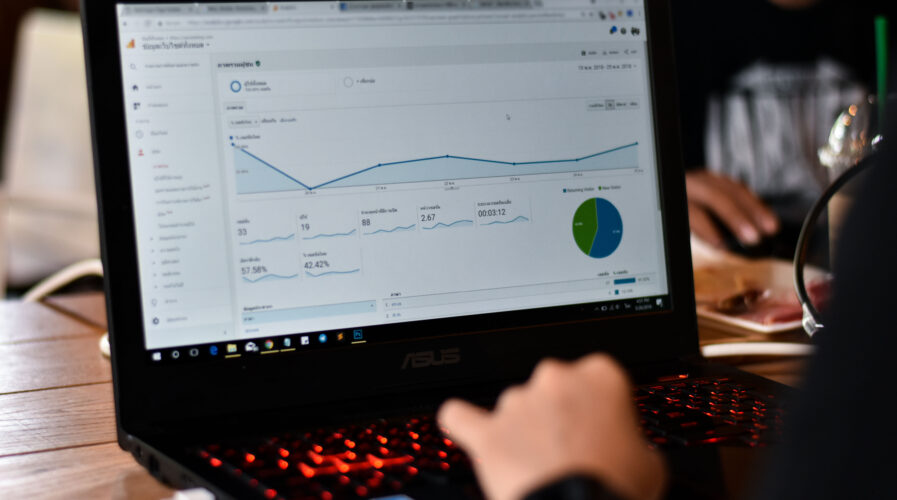
(Source – Shutterstock)
Harnessing and actioning data to drive business growth
In partnership with eTail Asia 2022, Tech Wire Asia had the pleasure to interview Dr Angshuman Ghosh, Head of Data Science for Sony Research India. Together we discussed how new sources of data, fed into systems powered by machine learning and AI, are at the heart of the digital transformation for many businesses across most industries.
Around the world, Covid-19 has accelerated retail’s transition to a digital future that we are living through today. It is also clear that the Asian region will get there first simply because of its advanced digital maturity. At this point, the region is generating about three-quarters of global retail growth and about two-thirds of online growth. In short, Asia is already the world’s consumption growth engine and the position is likely to be reinforced over the next decade.
As McKinsey Global Institute puts it, “disregarding Asia’s consumer markets would mean missing half the global consumption story.” Futuristic retail topics of such have been an ongoing discussion, especially since the pandemic struck. This time, it is also hot on the agenda at eTail Asia 2022, an event that is making a live and in-person return after two years, this 7-9 June 2022 at Resorts World Convention Center Singapore.
As the industry’s very best gathers in the three-day summit, eTail Asia will bring together the top international and home-grown retailers and eCommerce brands as well as subject matter experts in Asia. Among them is Dr Angshuman Ghosh, Head of Data Science for Sony Research India. Dr Angshuman will be part of a panel discussion, sharing insights and best practices based on his experiences on how data science and digital technologies be used to optimize business decision making and engage customer experience.
Tech Wire Asia (TWA) discussed with Dr Angshuman how these new sources, fed into systems powered by machine learning and AI, are at the heart of the digital transformation for many businesses across most industries. However, the sheer abundance of information and a lack of know-how can be overwhelming for most organizations.
What will you be sharing at eTail Asia?

Dr Angshuman Ghosh, Head of Data Science for Sony Research India
I am very happy and excited to join the eTail Asia conference as a speaker. I will be part of a panel discussion on 7th June at 14:05 pm SGT. I have significant work experience in both offline retail and eCommerce domains. I will share insights and best practices based on my experiences about how we can use data science and digital technologies to optimize business decision-making and engage customer experience.
What are the key topics you are keen to listen to and why is eTail a must not miss event?
eTail is one of the best conferences globally. Senior executives from the topmost global brands will be speaking at the conference. I am particularly interested to know about future trends in the retail and eCommerce industries and how data and digital technologies are creating value for top global companies and brands.
With that said, what are the common mistakes organizations make when it comes to understanding their customers?
As data grows exponentially, most companies take a reactive and unorganized approach. Companies may not capture data across the lifecycle or may not have processes for ensuring data validity and quality.
Without the right data and good data quality, the analysis may be incomplete or misleading. Without the right data analysis, customer understanding will be incorrect leading to suboptimal or wrong decisions.
For large enterprises, what complexities arise when managing input from various sources today?
There are three main complexities in a large company when trying to manage data from different sources. Firstly, different types of data require different tools and technologies to capture specific data to be compatible with each other.
Secondly, this information must be stored using a standardized format and have processes for ensuring data refresh and quality. Thirdly, data access and governance have to be managed efficiently to ensure proper usage and unlock its value.
How does a large company use information from consumers to not only improve their products and services, but also understand their demands?
Data helps to understand customer demand. Demand Forecasting is a critical application for many large companies including those in retail and media industries. In retail and eCommerce industries, data helps us predict the future demand for different products and plan all the operations and supply chain activities.
In the Media industry, user viewership and interaction data help us understand content preferences and this, in turn, helps us create more relevant content or build recommendation engines.
How has emerging technologies in data management and the enhancements in machine learning capabilities enhanced its use by both large and small enterprises today?
Emerging tools and technologies have transformed the entire data ecosystem. Open source and free tools such as Python or R have played a big role in this transformation. Earlier only large companies with big budgets could analyze lots of data using costly licensed software. But now any company, big or small, can make use of their data using free and open-source tools.
Cloud technologies such as AWS or Azure are also playing a key role by allowing every enterprise to make use of the best data-related services on-demand and pay for only their usage without spending a fortune on infrastructure.
Where do organizations draw the line when it comes to privacy, especially with collecting information and predicting what customers need?
User privacy is a very important topic and finally, it is getting its due importance. Europe has implemented stringent data privacy laws to protect user data and privacy. Even big-tech companies such as Google and Facebook have paid hefty fines for violating data privacy regulations. It is better to take a proactive approach to data privacy and security.
Organizations must classify input into different groups based on privacy requirements and regulations. Access to each class of data should be given to only appropriate stakeholders and any inappropriate usage should be prohibited by design.
With perfecting the customer experience the goal for most organizations today, is AI enough to solve this or do businesses still need to offer a personalized human approach towards them?
While AI and Data Science have revolutionized many aspects of the business world, human focused approaches are still very much relevant. There are use cases where AI can do much better than humans and those tasks should be handled by AI.
However, customers are human beings after all and humans are emotional and social beings who value connection with other humans. So, there are cases where customers may still prefer a human-centric approach. Balancing the usage of AI and a personalized human approach may be ideal for most customer-facing businesses.
READ MORE
- Ethical AI: The renewed importance of safeguarding data and customer privacy in Generative AI applications
- How Japan balances AI-driven opportunities with cybersecurity needs
- Deploying SASE: Benchmarking your approach
- Insurance everywhere all at once: the digital transformation of the APAC insurance industry
- Google parent Alphabet eyes HubSpot: A potential acquisition shaping the future of CRM



